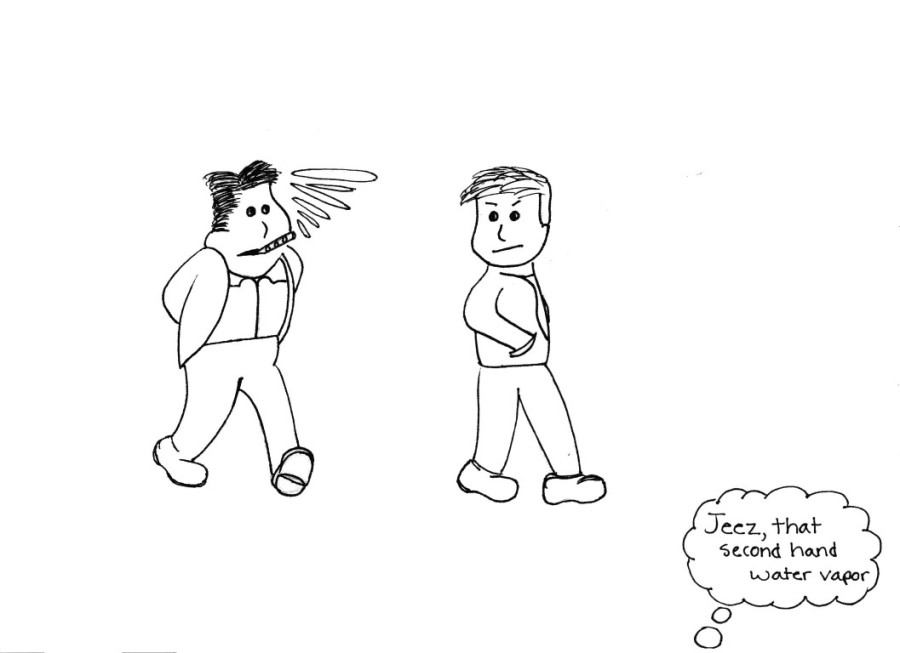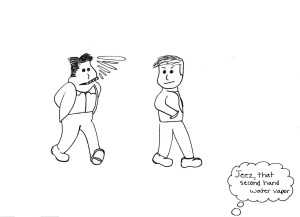A ban on an activity that harms others without their consent is lawful, but a ban on an activity that causes no harm to the surrounding party is not. The ban on electric cigarettes in Chicago is ridiculous and unjust to users.
On January 14, Chicago passed the ordinance to ban the use of electronic cigarettes (eCigs) in public places, according to the Chicago Tribune.
The ordinance was passed 45 to 4 and will prohibit people from using electronic cigarettes in restaurants, bars and most other indoor public places in the city. In addition, the eCigs are banned anywhere within 15 feet of a building entrance, just as traditional cigarettes are regulated under the city’s existing indoor smoking ban.
Supporters of the bills say e-cigarettes may cause people to start toxic addictions and may pose unknown health risks to the public, according to USA Today. Opponents argue that they help people stop smoking and do not contain the same chemicals that make regular cigarettes dangerous.
“These are being touted as safer than cigarettes, but we don’t really know that,” said Councilman James Gennaro, who co-sponsored New York City’s bill in an article on USA Today’s website. “Just seeing people smoking things that look identical to cigarettes in subway cars, colleges and public libraries will tend to re-normalize the act of smoking and send the wrong message to kids.”
This ban is not fair to nicotine users, as electronic cigarettes are commonly used to help addicts wean off of the drug and typical cigarettes. Cigarettes were banned due to the harmful effects of second hand smoke on others, yet electronic cigarettes have no known negative effects on others and simply release water vapor.
“While critics of the ban say e-cigarettes are harmless to bystanders and argue the change will make it more difficult for smokers who use e-cigarettes to help them quit smoking traditional cigarettes, others in support of the ban say it will dissuade more people from picking
up smoking in the first place,” according to the Chicago Huffington Post.
It does not make sense that a ban can be put on something to help people stop bad habits. Would it be lawful to stop people from drinking alcohol, or eating Big Macs in public? Just last year New York City banned the sales of soft beverages over 16 ounces as well as attempted to fix the amount of trans fat consumed. Both bans have good intentions, but revolve around control over the daily activities of citizens. As long as an individual’s behavior does not harm his or her surrounding company, he or she should be permitted to do it.
We live in a free country, not a dictatorship, and a ban on electronic cigarettes is completely unsupportive of this belief.


